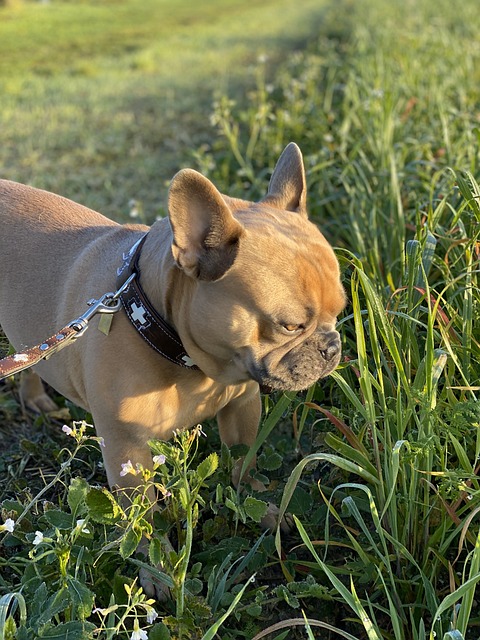We will know why dogs eat grass in this article. Dogs are known for their quirky behaviors, and one of the most common yet perplexing habits is eating grass. Have you ever wondered why dogs, despite being domesticated pets, indulge in munching on grass? In this article, we’ll delve into this intriguing canine behavior, exploring the various theories behind it, its potential risks, and what you should do if your furry friend is a grass enthusiast.
The Natural Instinct: Dogs and Grass
Dogs share their genetic heritage with wolves, and like their wild counterparts, they have maintained some ancestral instincts. One of these instincts is the consumption of plant matter, including grass. In the wild, wolves consume plants to supplement their diet and help with digestion. This behavior may have carried over to our modern canine companions.
Theories Behind Dogs Eating Grass
Nutritional Deficiency
Some experts believe that dogs may eat grass when they have a nutritional deficiency. They may be trying to compensate for missing vitamins, minerals, or fiber in their regular diet. This theory suggests that dogs instinctively seek out the nutrients they lack.
Digestive Aid
Another common theory is that dogs eat grass to help with their digestion. Grass can act as a natural laxative, aiding in the removal of indigestible materials from their stomachs. This could be especially beneficial when they have an upset stomach.
Ancestral Instinct
As mentioned earlier, dogs’ ancestors, like wolves, consumed plant matter as part of their diet. This behavior may be deeply ingrained in their genetics, and even though modern dogs have adapted to a primarily carnivorous diet, the instinct to eat grass may persist.
Is it Harmful for Dogs?
In most cases, eating a small amount of grass is not harmful to dogs. However, there are exceptions. If the grass they consume has been treated with pesticides or other chemicals, it can pose serious health risks. In such cases, it’s crucial to monitor your dog and seek veterinary assistance if they show signs of poisoning.
Signs Your Dog Might Be Unwell
It’s essential to be aware of any unusual behavior in your dog. If they are eating an excessive amount of grass or doing so frequently, it could indicate an underlying health issue. Other signs of illness may include vomiting, diarrhea, or lethargy. If you observe these symptoms, consult your vet promptly.
The Right Way to Let Your Dog Eat Grass
If your dog enjoys nibbling on grass and it doesn’t adversely affect their health, there’s no need to discourage this behavior. However, ensure that the grass they have access to is safe, pesticide-free, and clean. You can also consider providing alternative sources of fiber in their diet to address potential nutritional deficiencies.
Grass Varieties: Safe vs. Toxic
Not all types of grass are safe for dogs to consume. Some grass varieties can be toxic and lead to adverse reactions. While it’s impossible to list all the safe and toxic grasses, consulting your vet or a local horticultural expert can help you identify the plants in your area and make informed decisions regarding your dog’s environment.
The Role of Vet Consultation
If you’re concerned about your dog’s grass-eating habits, it’s always a good idea to consult with your veterinarian. They can assess your dog’s overall health, diet, and behavior to determine if there are any underlying issues that need attention.
In conclusion, the act of dogs eating grass is a natural and often harmless behavior rooted in their genetic makeup. It can be a sign of nutritional deficiency or a way to aid digestion. While occasional grass consumption is generally safe, it’s essential to be vigilant and ensure the grass is safe for your furry friend. Always consult your vet if you have concerns about your dog’s health or behavior.

FAQs
- Is it normal for dogs to eat grass?
Yes, it’s a relatively common behavior, and it’s not always a cause for concern.
- How can I tell if the grass my dog is eating is safe?
Consult with a local expert or your veterinarian to identify safe grass varieties in your area.
- Should I stop my dog from eating grass?
If it doesn’t negatively affect your dog’s health, there’s no need to discourage it.
- What should I do if my dog eats a large amount of grass?
Monitor your dog for any signs of illness and seek veterinary help if necessary.
- Can eating grass be a sign of a serious health issue in dogs?
While it’s not always the case, excessive grass-eating combined with other symptoms can indicate an underlying problem. Consult your vet for a proper evaluation.
